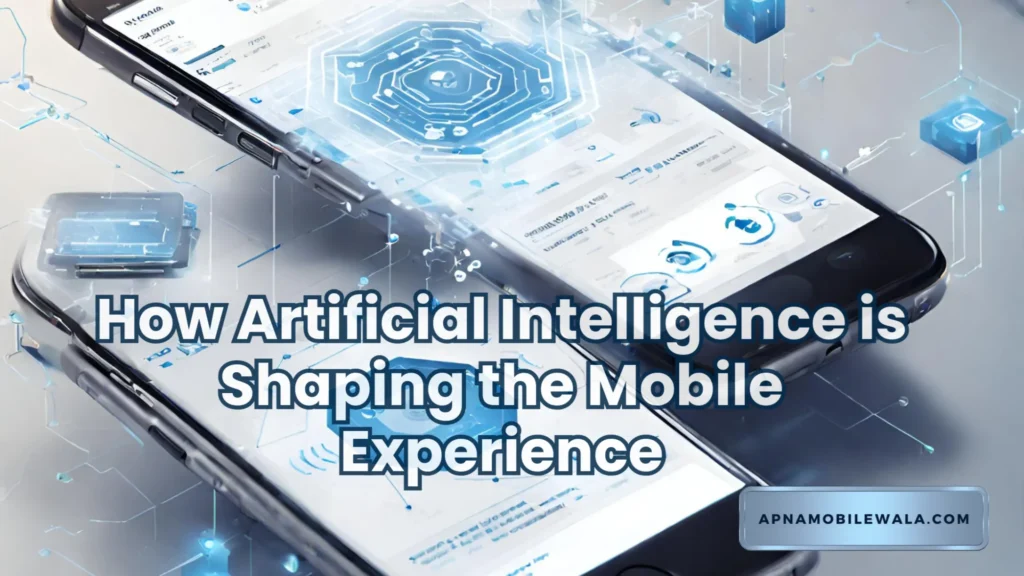The Phone That Reads Your Mind: Can Your Device Predict Your Needs Before You Do?
Science fiction has long painted a picture of technology that anticipates our desires. We see characters barking orders at their phones, and tasks are completed before they’re even finished speaking. But are we hurtling towards a future where our phones actually read our minds?
The truth is, we’re not quite there yet. However, with the constant evolution of mobile technology, the lines between prediction and intuition are blurring. Let’s delve into how our phones are becoming increasingly adept at anticipating our needs.
Learning from Our Habits:
Modern smartphones are data sponges, constantly collecting information about our behaviour. Search history, location data, app usage – all these paint a detailed picture of our daily routines and preferences. This data is then used by algorithms to predict what we might need next. For example, your phone might suggest your favourite coffee shop on your way to work in the morning, or pre-populate directions to a gym class you usually attend on Tuesdays.
Taking Cues from Your Context:
Smartphones are becoming more contextually aware. Imagine you’re texting a friend about a movie you both want to see. Suddenly, your phone pops up with showtimes and ticket purchase options. This isn’t telepathy; it’s your phone recognizing keywords and using location data to provide a relevant suggestion.
The Rise of Voice Assistants:
Voice assistants like Siri and Google Assistant are becoming more sophisticated at understanding natural language. By learning your voice patterns and typical requests, they can anticipate your needs and offer proactive suggestions. “Hey Siri, I need an umbrella” might trigger a weather report indicating rain and a map of nearby stores selling umbrellas.
The Limits of Prediction:
While impressive, these features are a far cry from mind-reading. They rely on past behaviour and current context, not some mystical ability to see into your future. Furthermore, privacy concerns remain a hurdle. How comfortable are we with our devices knowing so much about our habits?
The Future of Predictive Tech:
The future of predictive technology in smartphones is exciting. Imagine a phone that reminds you to call your mom on her birthday, or automatically adjusts your thermostat based on your schedule. However, ethical considerations around data privacy and user control will be crucial as this technology evolves.
The phone that reads your mind might still be a trope of science fiction, but our devices are definitely getting better at anticipating our needs. As technology progresses, the line between prediction and premonition will continue to blur, making our mobile experiences ever more seamless and (dare we say?) intuitive.
Google Mind Reading App
Google currently doesn’t have a mind-reading app, and it likely won’t in the foreseeable future. Here’s why:
- Technology Limitations: Mind reading, in the truest sense, is still science fiction. While technology is advancing in brain-computer interfaces, we’re nowhere near deciphering someone’s complete thoughts.
- Privacy Concerns: Imagine an app that could read your mind. The privacy implications would be immense. Google prioritizes user privacy, and an app like that would raise serious ethical concerns.
- Focus on Existing Solutions: Google is constantly innovating in areas like voice recognition and understanding user intent. These areas offer a more realistic path to enhancing user experience without venturing into mind reading territory.
Now, there might be apps that claim to “read your mind” but they likely rely on:
- Tricks and Probability: These apps might use psychological tricks or simple probability to make it seem like they’ve guessed your thoughts.
- Limited Predictions: Some apps might analyze your past behavior and interactions to make basic predictions about your preferences.
So, while there isn’t a true mind reading app from Google, there are ongoing advancements in user experience that make our phones feel more intuitive.
Google Mind-Reading Technology
Google isn’t currently developing mind-reading technology in the way science fiction portrays it. Here’s a breakdown:
- Current Focus: Google’s research focuses on areas like understanding user intent and improving voice recognition. These advancements make our phones seem more intuitive but don’t involve directly reading minds.
- Technical Hurdles: True mind-reading, where we decipher a person’s complete thoughts, is beyond our current capabilities. Brain-computer interfaces are a developing field, but they’re nowhere near that level of sophistication.
- Privacy Issues: Imagine an app that could access your unfiltered thoughts. The privacy concerns would be immense. Google prioritizes user privacy, and such technology would raise serious ethical red flags.
However, Google (and other researchers) are making strides in understanding the brain:
- Brain Mapping: Google has made contributions to brain mapping projects, creating detailed maps of brain structures. This can offer valuable insights into how the brain works but doesn’t translate to mind-reading.
- Brain-Computer Interfaces: There’s ongoing research in using brain signals to control devices. For instance, Google might be involved in projects using brainwaves to translate thoughts into text (like some recent studies from other institutions). This wouldn’t be reading your mind directly but interpreting specific signals.
Overall, while Google isn’t in the mind-reading business, advancements in brain research and user experience are making our interactions with technology feel more natural and responsive.
Akinator mind Reading App
How does Akinator Work
Akinator, the web-based guessing game, might seem like magic, but it relies on clever algorithms and a massive database to identify your chosen character. Here’s the breakdown:
-
Giant Character Database: Akinator’s secret weapon is a vast database containing a huge number of real and fictional characters. Each character has a profile with various attributes like gender, profession, origin story, and physical appearance.
-
Decision Tree Magic: Akinator uses a decision tree algorithm. Imagine a branching flowchart, where each question acts as a branch. By answering “yes” or “no” to Akinator’s questions, you navigate this tree, eliminating unlikely characters and narrowing down the possibilities.
-
Learning from Every Guess: Akinator is constantly learning and improving. If it struggles to guess your character, you can provide feedback by telling it the actual character. Akinator then refines its database, potentially adding new questions or refining existing ones to better distinguish similar characters in the future.
Here’s a more detailed look at the process:
- Think of a Character: You choose a real or fictional character and keep it in your mind.
- Question Time: Akinator starts with broad questions like “Is your character male or female?” Each question strategically divides the character pool based on typical characteristics.
- Navigating the Tree: Your answers guide Akinator through its decision tree. With each “yes” or “no,” the potential characters become more specific.
- The Big Guess: After a series of questions, Akinator takes a shot at guessing your character. It analyzes your answers within the context of its vast database to make the most likely choice.
- Feedback Loop: If Akinator guesses correctly, it celebrates! If not, you reveal the actual character. Akinator then learns from this interaction, potentially adding new questions or refining existing ones to improve its guessing accuracy in the future.
So, Akinator isn’t reading your mind, but it’s a well-designed system that leverages a massive database, strategic questioning, and continuous learning to create an impressive guessing game experience.
Thanks for Reading!



